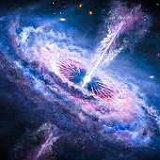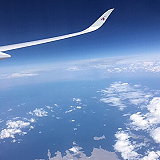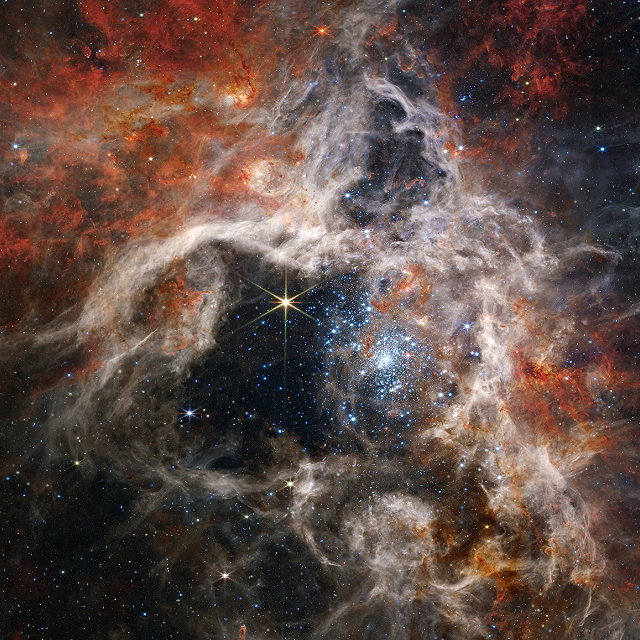
|
Universe Universe Last Updated: 12/27/2024 |
| The universe is all of space and time and their contents. It comprises all of existence, any fundamental interaction, physical process and physical constant, and therefore all forms of matter and energy, and the structures they form, from sub-atomic particles to entire galactic filaments. | |
Website Wikipedia Facebook
World » Wrd
Place » City

|
Strait of Hormuz Place » Sea The Strait of Hormuz is a strait between the Persian Gulf and the Gulf of Oman. It provides the only sea passage from the Persian Gulf to the open ocean and is one of the world's most strategically important choke points. 102 views 💖 1 👍 0Persian Gulf |

|
Rio Grande Place » River The Rio Grande, known as the Río Bravo in Mexico, is one of North America's most significant rivers, extending approximately 1,900 miles (3,060 kilometers) from its source in the Rocky Mountains of Colorado to its mouth at the Gulf of Mexico. It serves as a vital water source for millions and forms a natural border between the United States and Mexico, particularly between Texas and several Mexican states including Chihuahua and Coahuila. 332 views 💖 1 👍 0North America |

|
Mount Elgon Place » Mountain Mount Elgon is an extinct shield volcano on the border of Uganda and Kenya, north of Kisumu and west of Kitale. The mountain's highest point, named "Wagagai", is located entirely within Uganda. Mt Elgon was once Africa’s highest mountain, far exceeding Kilimanjaro’s current 5,895m. Millennia of erosion have reduced its height to 4,321m, relegating it to the 4th highest peak in East Africa and 8th on the continent. 176 views 💖 1 👍 0Africa |

|
Rhone River Place » River The River Rhône is one of the major rivers of Europe. It rises in the Swiss Alps, passes through Lake Geneva and then runs through south eastern France. At Arles, near its mouth on the Mediterranean Sea, the river divides into two branches, known as the Grand Rhône and the Petit Rhône. The resulting delta constitutes the Camargue region. 249 views 💖 1 👍 0Europe |

|
Tagus River Place » River The Tagus is the longest river in the Iberian Peninsula. The river rises in the Montes Universales between Cuenca and Teruel, in mid-eastern Spain, flows 1,007 km (626 mi), generally westward, and empties into the Atlantic Ocean in Lisbon, right at the point where Portuguese caravels set sail on their many voyages of discovery hundreds of years ago. 157 views 💖 1 👍 0Europe |

|
Oder River Place » River The Oder is one of the largest rivers in Central Europe. It rises in the Oder Mountains in the Czech Republic, from where it flows towards the border with Poland. For a short section it is the border river between Poland and the Czech Republic. The longest section is in Poland (503 km). From the confluence of the Lusatian Neisse river to the dividing into Western Oder and Eastern Oder, it marks the border between Germany and Poland (163 km). 171 views 💖 1 👍 0Europe |

|
Dnieper River Place » River The Dnieper River, one of Europe's major rivers, is approximately 2,200 kilometers (1,367 miles) long, making it the fourth longest river in Europe after the Volga, Danube, and Ural rivers. It originates in the Valdai Hills of Russia and flows through Belarus and Ukraine before emptying into the Black Sea. The river's basin covers an area of about 504,000 square kilometers (195,000 square miles). 143 views 💖 1 👍 0Europe |

|
Elbe River Place » River The Elbe River is one of the major rivers of Central Europe. It rises in the Giant Mountains of the northern Czech Republic before traversing much of Bohemia, then Germany and flowing into the North Sea at Cuxhaven, 110 kilometres (68 miles) northwest of Hamburg. Its total length is 1,094 km (680 mi). The Elbe's major tributaries include the rivers Vltava, Saale, Havel, Mulde, Schwarze Elster, and Ohře. 170 views 💖 1 👍 0Europe |

|
Australia Continent Place » Continent Australia is both a country and a continent, making it unique in the world. Australia is the smallest continent, covering about 7.7 million square kilometers (2.97 million square miles). It lies in the Southern Hemisphere, between the Indian and Pacific Oceans, and is entirely surrounded by water. Australia's physical separation from other landmasses has resulted in unique biodiversity and ecosystems. 153 views 💖 1 👍 0Oceania |

|
Milky Way Place » Space The Milky Way is the galaxy that contains our solar system. It's a barred spiral galaxy, meaning it has a central bar-shaped structure composed of stars. The Milky Way spans about 100,000–200,000 light-years in diameter. It contains approximately 100–400 billion stars. Its mass is estimated to be about 1.5 trillion times the mass of the Sun, most of which is dark matter. 162 views 💖 1 👍 0Universe |
